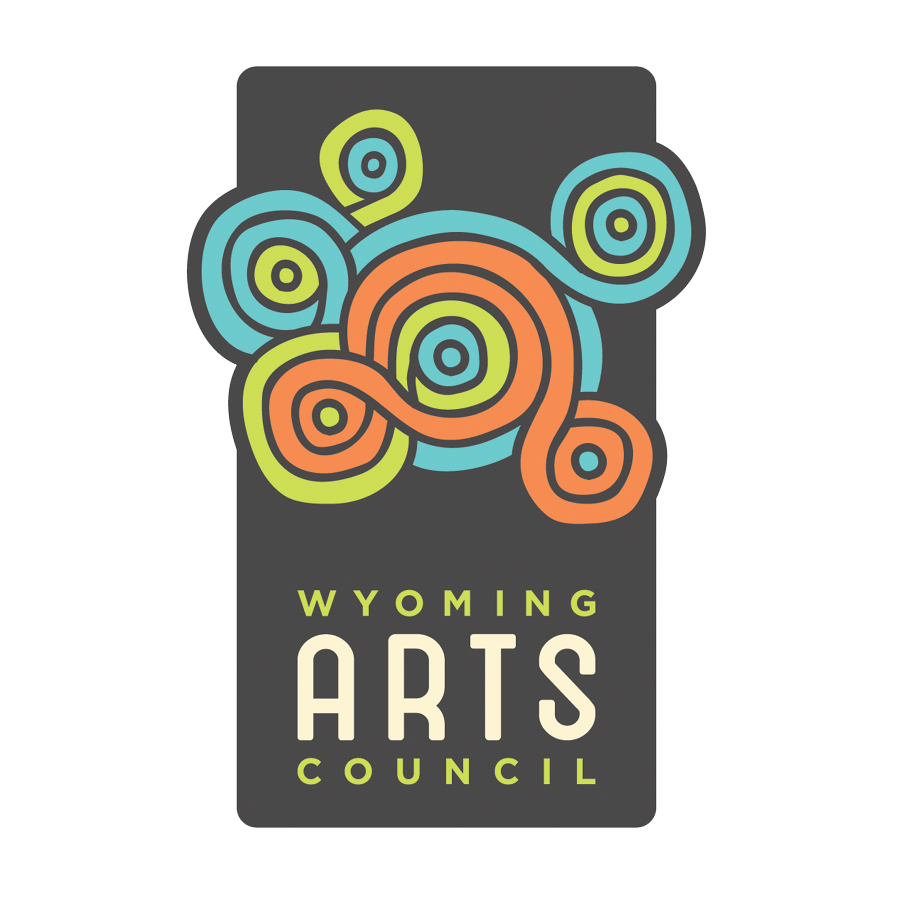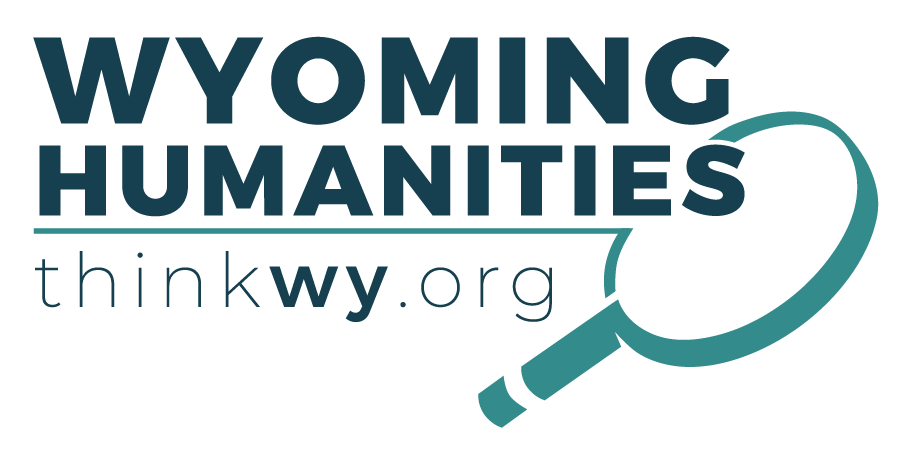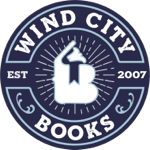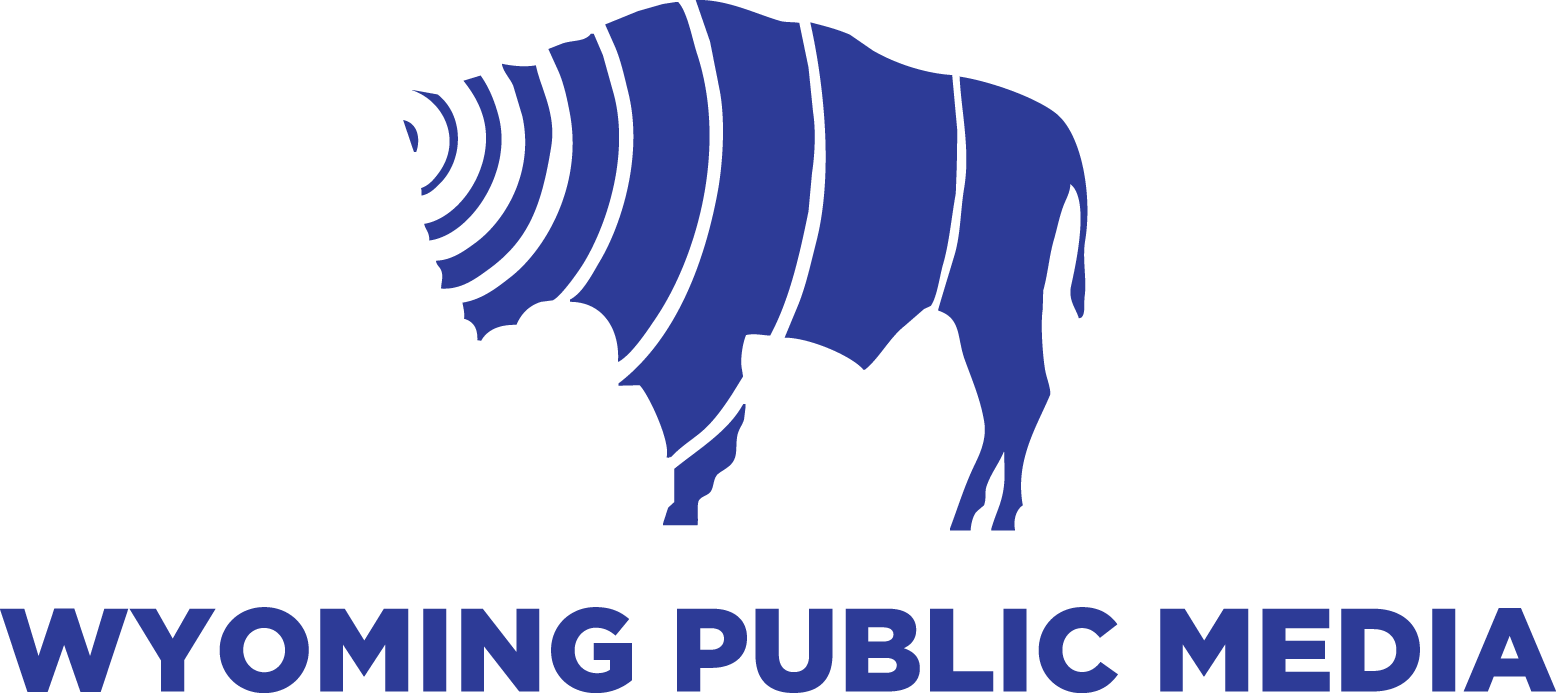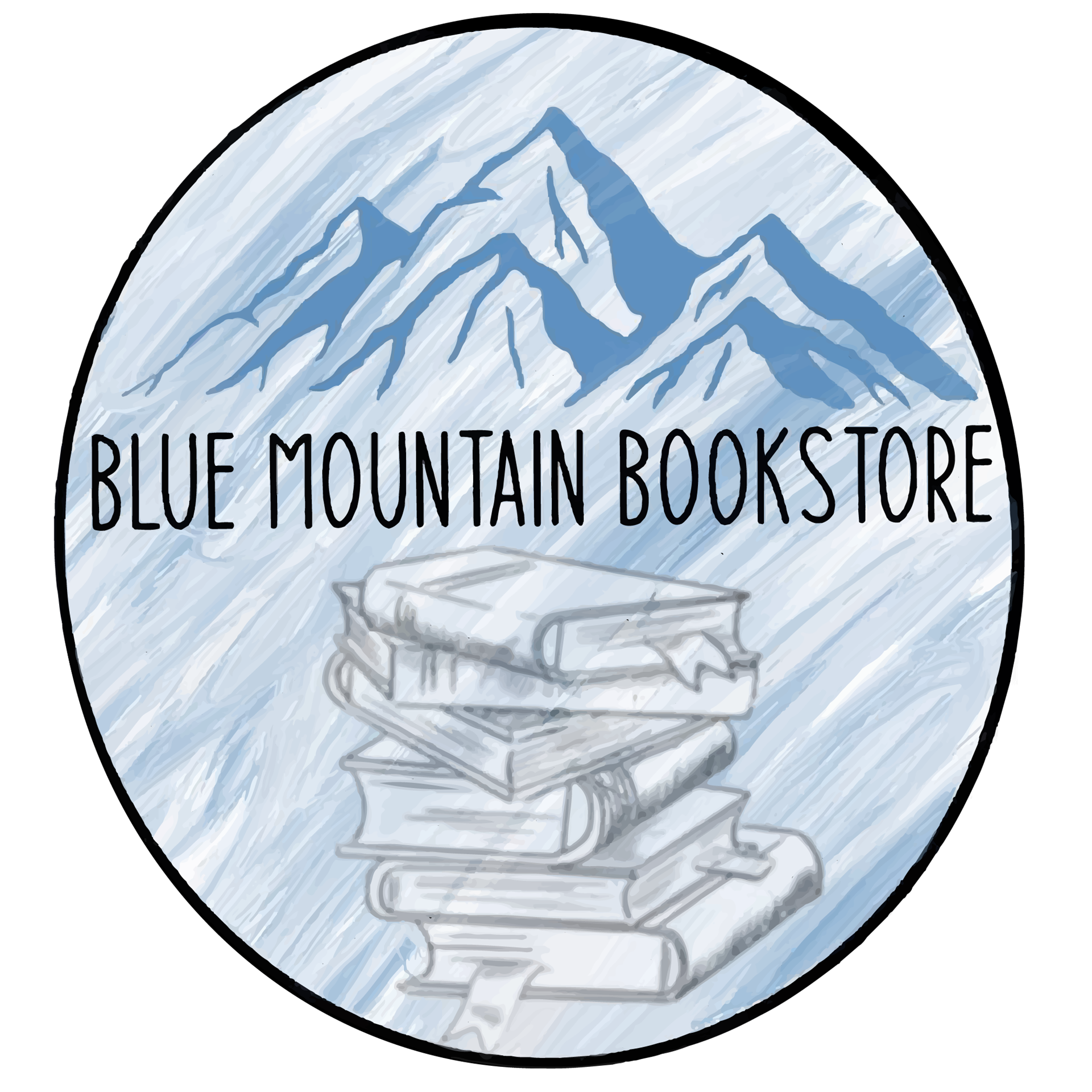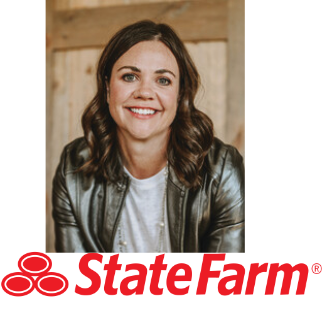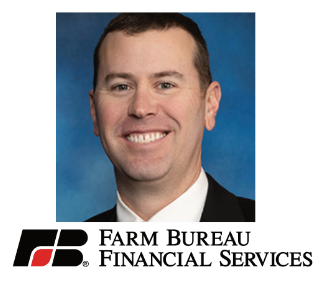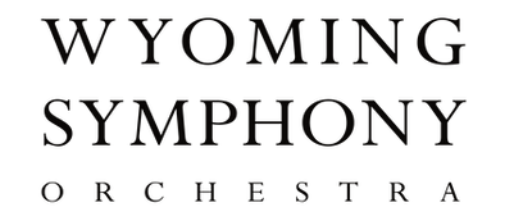.jpg)
Our 50th Annual Conference will take place at the Ramkota Hotel in Casper, WY from May 31st through June 2nd! Mark your calendars now!
Jump to:
Faculty (including attending agents and publishers)
2024 Conference faculty
Casey Rislov
Casey Rislov has 8 award winning children's books and has been in the children's book business for more than 12 years.
Time Together, Time Well Spent! was her debut book, Love is Forever has gained international attention for its beautiful way to talk about loss. LOVE is a picture book for the youngest of children to introduce the concept of connection. Come In: Open the Doors to You encourages children to try new things, Imagination Bigger Together teaches children about friendship & exploration, Rowdy Randy is a wild west adventure you won't want to miss. Rowdy Randy returns in her latest book the Rowdy Randy Wild West Show!
Casey Rislov also recently teamed up with acclaimed wildlife photographer Ron Hayes for an adorable wildlife picture book for all ages in, "Let Me Tell You About My Mom." She has also contributed pieces for Elephant Journal, Working Mother, and HuffPost.
Her passion has always been centered around child education.
Casey has actively been involved with children in sports and academics from preschool age to high school for over 30 years. She has coached kids swimming and skiing and worked in Special Needs & Early Childhood Education.
Casey has a Master's degree in Elementary Education from Montana State University. She is endorsed in early childhood and special needs.
Currently she is devoted to her writing, reading her books to children, & sharing the love of books with children.
Zachary Pullen
Zachary Pullen’s picture-book illustrations have won awards and garnered starred reviews. He has been honored several times with acceptance into the prestigious Society of Illustrators juried shows and the Communication Arts: Illustration Annual, best in current illustration.
Pullen’s character-oriented picture book illustrations have been well received since first being published in 2004. His titles include: The Toughest Cowboy or How the Wild West was Tamed, Friday My Radio Flyer Flew, Alfred Nobel: The Man Behind the Peace Prize, S is for Story: A Writers Alphabet, Finn McCool and the Great Fish, The Presidents, Rowdy Randy, The Christmas Ass, The Thinkers, The Rowdy Randy Wild West Show, the legend behind the legend, and many more.
He is in the middle of another book continuing his partnership with Casey Day Rislov.
Zak lives in Casper, Wyoming with his wife Renate while his son Hudson attends the University of Montana.
Laura Pritchett
Laura Pritchett is the author of seven novels —two of these are being released in 2024. Known for championing the complex and contemporary West and giving voice to the working class, her books have garnered the PEN USA Award, the Milkweed National Fiction Prize, the WILLA, the High Plains Book Award, and others. She’s also the author of two nonfiction books, one play, and was editor of three environmental-based anthologies, including Home Land: Ranching and a West that Works.
Laura developed and directs the MFA in Nature Writing at Western Colorado University, one of the few place-based writing degrees in the nation. She grew up on a ranch in northern Colorado, and when not writing or teaching, she’s generally found exploring the mountains nearby.
Session 1 - Experimental in the Mainstream
Check out all the episodic, listicle, epistolary, and hermit-crab works out in mainstream publications these days! Don’t know what those terms mean? Never fear! That’s what this crash course is about. We’ll take a look at several innovative and experimental forms of writing – and you’ll leave having generated ideas of your own. Whether you write fiction, nonfiction, or poetry, long form or short, some playful innovation and experimentation is sure to inspire.
Session 2 - Out of the sheets, onto the page…
Let’s face it: Sex scenes can be outrageously bad—there’s even an award dedicated to the worst sex scene published each year. And yet, it’s one of our very-human, very-revealing endeavors— and the complete absence of a sexual life in fiction or nonfiction can be just as…well, weird. Whether it’s fantastic, boring, strange, lovely, absent, present, or whatever, sex is one of the most powerful unions and sensations we experience, and it shouldn’t be skipped or avoided in writing. On the other hand, a sex scene shouldn’t be included unless it serves a purpose, which is to illustrate the characters and the larger themes of the work. We’re not talking about porn, and we’re not talking about hallmarky stuff either—we’re talking about getting real intimacy on the page. To that end, this class will explore how to direct an honest gaze and write an intimate, respectful scene that, well, won’t make the author or reader blush.
Aaron A. Abeyta
Aaron A. Abeyta is a Colorado native, Professor of English and the former Mayor of Antonito, Colorado, his hometown. Abeyta is also the co-founder of The Justice & Heritage Academy
He is the author of five collections of poetry and one novel. For his book, colcha, Abeyta received an American Book Award and the Colorado Book Award. His most recent book, Ancestor of Fire is shortlisted for the Reading the West Book Award. In addition, his novel, Rise, Do Not be Afraid, was a finalist for the 2007 Colorado Book Award and El Premio Aztlan. Abeyta was awarded a Colorado Council on the Arts Fellowship for poetry, and he is the former Poet Laureate of Colorado’s Western Slope, as named by the Karen Chamberlain Poetry Festival. Abeyta is also a recipient of a Governor’s Creative Leadership Award for 2017. Abeyta was a finalist for Colorado Poet Laureate, 2019.
Aaron has over 100 publications including 'An Introduction to Poetry, 10th ed.,' Literature: An Introduction to Fiction, Poetry, & Drama, 8th ed.' ‘Conversations in American Literature: Language, Rhetoric, & Culture,’ ‘The Leopold Outlook,’ ‘Colorado Central Magazine,’ ‘The High Country News,’ and numerous other journals.
Session 1: The Wound is the Well. The Ghost is the Bucket
The old saying, what’s in the well comes up in the bucket, is intended to speak of a person’s character, resolve, and ambitions. This can hold true in terms of poetry as well, but we will focus on the particular “ghosts” of the poet’s past, both ancestral and those haunting; the themes, images, ideas, and recurring subjects a particular poet (you) tend to explore over and over – the well-source of what makes each of us write.
Our workshop will focus on techniques and concepts which will make us better readers, able to identify in others’ work what we are searching for in our own; writers will be offered a wide range of tools, effective in all genres, for incorporating what they have learned into their own poems and writing.
At the heart of the workshop is the notion that we, writers, are here to heal, repair and make whole, not just for our own sake but for our readers. One of my favorite quotes is from Wallace
Stevens’ “Large Red Man Reading;” it encapsulates, for me anyway, the magic of a poem, the power of a poem to make the reader feel and be healed, even when, perhaps, they were unaware of what they sought yet were healed, nonetheless, but what they found therein,
Which in those ears and in those thin, those spended hearts,
Took on color, took on shape and the size of things as they are
and spoke the feeling for them, which is what they had lacked.
Session 2: The Poems for Which We are Grateful
Each poem, those personal gestures of honesty, compassion, healing, and joy, are our attempts to enter a temporal and sacred space – where the universal and the personal meet at the confluence of our lives shared with those of our readers. It was W.H. Auden who said that there were only a handful of poems for which he was truly grateful. What is the stuff – the magical, technique, the
myths, the scars, the many homes of our hearts – that occupies the page in a poem that we can point to as being truly grateful for? Fishtrap, 2024 will be our examination of the techniques, the leaps, and the consistent work of what makes a poem, not just a keeper but timeless and therefore human in a way that only a poem can be. What are the elements of a poem for which we are truly grateful – that work which creates its own mythology while simultaneously examining the daily work of living – bold, accessible and brave for having been written?
Each of us is carrying that poem within us. We have contemplated it for years, decades, some of us since before we can remember. We will seek that poem. Our workshop will explore the multiple and complex emotions, those which seem disparate and difficult to tether to one another in a meaningful way, and we will write, write again, navigate the dangerous and safe places that poem will take us. Together, we will craft the poem we have always wanted to write, surrendering ourselves to the places, people and the voice the poem dictates, not us…the poem will guide us into its existence (that’s the hope).
Session 3: All the “Write” Moves
If you will forgive a few sports analogies, Kareem had the sky hook; Ali had his shuffle (and a rope a dope); Rapinoe has her post-goal winged victory pose; and...well...you get the idea the greats have their zone, their go-to move, their 10,000 hours dedicated to something iconic, special and wholly theirs.
What is your move? Your go-to? How can you find it? How can you perfect it? We aren’t talking sports but writing, of course. Writers are no different. Some call it style. Some call it voice...well...you get the idea the greats have their...enough of repetition; that’s a move too.
In this workshop we will read pieces from multiple genres and take a very close look at the particular stylistic and therefore signature gestures that make their work timeless, memorable and unique. The goal for our time together is to read better, definitely, but more than that understand the technique, choices, and innate moves a writer makes, out of necessity, skill, practice and blessing. Put another way, so many of my students are writing their moves blindly and without reverence for their inherent power. They are in almost everything they write, born there out of experience, love, betrayal, tenderness and sometimes brutality; yet, they skim over the
possibilities simply because they haven’t, yet, recognized the power of what they already do, know and render. We will explore the ways to make the moves work for you, your writing and for your readers. Let’s go find those moves... together.
Elizabeth Anne West
Elizabeth Anne West is a Jane-of-all-trades, mistress to none! A leader in technological education for authors on digital publishing since 2011, she has helped hundreds of authors publish profitably in their preferred genre. Starting her writing career as an SEO writer in 2007, transitioning to a book marketer with The-Cheap back in 2012, and finally starting her own author education school in 2018, she now speaks at national author conferences such as 20Booksto50K Vegas and Romance Writers of America on topics about the publishing business, derivative fiction, and writing with AI.
Working closely with Sudowrite in 2023 as their Community and Education Lead, she now consults for prompt engineering and loves staying up on the latest innovations. An alumni of Christopher Newport University with a B. A. in Leadership Studies, she has authored over 25 novels and hit the top 100 on the Amazon, Barnes and Noble, Apple, Kobo, and Google Play stores.
Session 1: Dictionary Slot Machine: How AI Works and Can Help Any Writer’s Process
A funny, interactive session about how AI works and more importantly…. Doesn’t work. Authors and publishers alike are using AI tools in everything from brainstorming to marketing to generative prose. Come learn and play with some AI and walk away knowing one very important thing: Writer’s block is dead, long live the Writer!
Session 2: 4 Ways Authors Work with AI: Gardener, Weaver, Baker, Architect
The Future Fiction Academy has taught hundreds of authors how to work AI into their process. Find out about the 4 main ways authors find themselves comfortable with the newest disruption to publishing. Are you a Gardener, taking a few phrases here and there? A Weaver using AI to help bridge gaps in your own writing, slaying deadlines like they’re dragons? What about a Baker who wants to try that prompt just one more time in case the next run is extra flavorful? Or perhaps you love editing more than writing and as an Architect AI writes that zombie first draft so you start on Draft 2? No matter which Job Type you like to work with AI, there’s one for you and there’s no wrong way to work the new technology.
Session 3: Selling Mr. Darcy: Reaching New Audiences with Derivative Fiction
A trick as old as time, leverage derivative fiction to reach a whole new audience! Learn about public domain titles and how remakes, respins, and reimaginings are used by big publishers and Hollywood all the time. What are the Dos and Don’ts of writing cross-overs and how do you find popular public domain works for your genre? What are the copyright implications to worry about if you are writing a new version of a beloved classic?
Todd Fahnestock
Todd Fahnestock is an award-winning, #1 bestselling author of fantasy for all ages and winner of the New York Public Library’s Books for the Teen Age Award. Threadweavers and The Whisper Prince Trilogy are two of his bestselling epic fantasy series. He is a founder of Eldros Legacy—a multi-author, shared-world mega-epic fantasy series—three-time winner of the Colorado Authors League Award for Writing Excellence, and two-time finalist for the Colorado Book Award for Tower of the Four: The Champions Academy (2021) and Khyven the Unkillable (2022). His passions are great stories and his quirky, fun-loving family. When he’s not writing, he travels the country meeting fans, gets inundated with befuddling TikTok videos by his son, plays board games with his wife, plots future stories with his daughter, and plays vigorously with Galahad the Weimaraner. Visit Todd at toddfahnestock.com.
Session 1: Building Better Beginnings
In this age of entertainment overload, you only have so much time to hook a reader. Join Todd Fahnestock as he focuses on the critical first sixteen sentences of a novel. He will show you how to build a fast-paced opening scene, catch the reader's attention, and organically create Character/Plot/Setting on the fly.
Session 2: Edge-of-Your-Seat Action
Ready to write compelling, breakneck action scenes? In this workshop Todd Fahnestock explores what it takes to build character, build expectation, build tension… and let it loose. Swords will clash, blood will fly. Attend this workshop and learn how to leave the competition behind.
Session 3: Conquering the Con – Logistics
Learn how to sell directly to your readers. A master of hand-selling techniques and a veteran of over sixty cons, Todd Fahnestock shows you the logistics of attending and selling your books at conventions, including securing venues, marketing materials, where to go, what to bring, and more…
Rodger McDaniel
Rodger McDaniel was a Wyoming state legislator (1971-1981). He received a University of Wyoming law degree (1980), and a Master of Divinity degree from the Iliff School of Theology (1999).
He was a 2000 Fellow at the College of Preachers, National Cathedral, Washington, DC, studying what it means to worship God on land stolen from Indigenous Peoples.
He was Director of the Wyoming Department of Family Services and mental health and substance abuse programs (2003-2011). In 2023, Rodger retired after serving 15 years as pastor at Highlands Presbyterian Church in Cheyenne.
Rodger has written nearly 700 newspaper columns, 500 sermons, and five books, as he says, “with two fingers.” His most recent book, “Profiles in Courage: Standing Against the Wyoming Wind,” is a collection of stories of marginalized people or their advocates who stood courageously against the prevailing culture.
Others include “Dying for Joe McCarthy’s Sins-The Suicide of Wyoming Senator Lester Hunt” (2013),“The Sagebrush Gospel,” reconstructing the parables in the context of contemporary history (2014), “Howard Zinn and Lois Mottonen Fistfight in the Equality State, and “The Man in the Arena-The Life and Times of US Senator Gale McGee,” (both 2018).
He and his wife Patricia live in Laramie.
Session 1: A Recovering Lawyer’s Guide to Non-fiction Storytelling
Following a near quarter of a century as a trial lawyer, Rodger McDaniel began writing weekly newspaper columns, sermons, and non-fiction books. While unable to transfer legal-writing practices to that work, he realized there are practices employed by successful trial lawyers that could effectively be incorporated to non-fiction story craft. The art of presenting a successful court case lies in good storytelling. Whether it’s the defense or the prosecution, they win by conveying their client’s story concisely within guardrails designed to separate the truth from that which is not. As an attorney, a preacher, and a non-fiction writer, he came to understand that trials, columns, and sermons are, in the final analysis, stories. Whether it’s juries, readers, or the folks in the pews, good, honest story telling is compelling. During this session he will discuss the characteristics shared by good trial lawyers and good non-fiction writers and how the truth finding guardrails of a jury trial can improve your non-fiction story craft.
Session 2: A Theologian’s Guide to Non-fiction Storytelling
Kurt Vonnegut observed, “Who is more to be pitied, a writer bound and gagged by policemen or one living in perfect freedom who has nothing more to say?” Writer Eduardo Galeano believed the words we write must “make audible the voice of the voiceless.” As a seminary student, Rodger discovered that voice in the writings of the ancient Hebrew prophets, e.g., Isaiah, Micah,
and Amos. Later, during a fellowship at National Cathedral in Washington, D.C., Rodger contemplated and began writing about what it means to preach the Gospel on stolen ground. He studied these topics not as religious dogma but as the means of advancing the cause of social justice.
As a theologian and later as a writer, Rodger was influenced by the ability of the prophets and Indigenous spirituality to enter into the suffering of others in a way that opened them to challenge the most brutally oppressive rulers of their day with words that demonstrated courage and honesty. Rodger suggests contemporary writers find truth centered in a commitment to what writer Grace Paley said. “Art, literature, fiction, and poetry makes justice in the world. That’s why it almost always has to be on the side of the underdog.”
During this session Rodger explains why he believes that if contemporary writers want to be relevant in these tumultuous times, they need be versed in critical race theory, generational trauma, and white privilege because, he says, every character in most every story worth telling has been molded in significant part by some or all of these experiences.
Janci Patterson
Janci Patterson writes young adult science fiction and fantasy, romantic comedy, and epic fantasy. She has co-authored many books, including the sixth book in the Alcatraz vs the Evil Librarian series and the Skyward Flight collection with Brandon Sanderson. Janci and Brandon will be continuing the Skyward universe with a new co-authored trilogy, debuting in 2025.
As a hybrid author, Janci has published forty books both independently and traditionally. She lives in Orem, Utah with her husband, two children, and her energetic border collie. In her spare time, she plays games of all kinds, customizes barbie dolls, and watches too much reality TV.
Session 1: Structure in Fiction: How to Lead so your Reader can Follow
Have a manuscript you can't figure out how to fix? A story with pacing problems? Learn about the bones of fiction structure and the way they affect your reader's experience so you can spot problems in the outlining and revision stages and craft books your readers will be thrilled to devour.
Session 2: Tools for Collaboration: How to write with a partner without losing your mind
Collaborative writing can be rewarding, but also has unique challenges and pitfalls. Come learn from experienced collaborator Janci Patterson how to realize your team potential while keeping your relationships and sanity intact.
Session 3: Writing for Young Adults
The YA marketplace has grown exponentially over the few decades, and the audience is not only teens! With so many adults reading YA, what sets it apart from the adult marketplace? In this class we'll discuss the hallmarks of the young adult genre, debunk pervasive myths, and demystify writing for hungry YA readers.
Aaron Linsdau is the second American to have skied solo from the coast of Antarctica to the South Pole, setting the world record for that expedition, featured in the book Antarctic Tears. He lead one of the oldest teams ever to cross the Greenland ice cap unguided and unsupported, featured in the book Two Friends and a Polar Bear. He has a Master’s Degree in Computational Science and a Bachelor’s Degree in Electrical Engineering. Aaron has published thirty-seven books, many of which have reached number one in multiple Amazon categories. He is the publisher of Sastrugi Press.
Pitches accepted:
All books except:
No poetry.
No cookbooks.
No anthologies.
No memoirs unless the person has done something remarkable.
All the above holds unless they have 100k+ YouTube subscribers/ 50k+ Instagram followers.
Session 1: Publishing Industry Insights
Writing a book can be difficult. It can take weeks to years to write your first or twentieth book. Then, you need to have others help you edit your book. And that’s the easy part. Once you’ve written and had your book edited, you have to figure out how to convince a publisher to accept your book for publication. Rising to the top of the slush pile takes a monumental amount of effort. It’s difficult but not impossible. Sastrugi Press publisher Aaron Linsdau will share a decade of insights on how to be successful as a writer. He will provide real numbers of what it takes to reach number one and how you can get there. He will touch on the impacts of AI.
Mira Landry is an Associate Literary Agent with Corvisiero Literary Agency. She’s dedicated to building writing and literary communities through events and educational programming, and co-hosts a podcast analyzing recently published books using Literary Forensics called Writers Who Read.
Mira is seeking literary and upmarket adult fiction, ideally character-driven literary explorations with efficient, stunning prose and commercially appealing plots. She’d love to see experimental, artful writing that reels her in with continuously building tension and curiosity. She likes when speculative aspects are well-woven amid the protagonist’s journey and mostly set within our current reality without too many dragons, vampires, or aliens. She prefers romance that is embedded in women’s fiction, and mysteries rich in visceral settings and complex characters.
Mira would specifically love to see more work from Indigenous/First Nations authors, as well other historically marginalized and underrepresented voices.
Mira represents some select non-fiction including: memoir (specifically female athletes and professionals), behavioral economics, development and psychology, sports science/fitness/nutrition (not including dieting/weight-loss/fasting), meditation/mindfulness, modern feminism, and essay collections.
She is not looking to acquire horror, poetry, erotica, commercial fiction, middle-grade, picture books, or inspirational.
Session 1: How to Write a Synopsis without Crying First
It doesn't have to be the "Dreaded Synopsis". It can be the efficient, well-written synopsis that highlights your premise and stand-out voice, all without making you want to give up writing. We'll cover a Synopses Writing Recipe using the movie Rita Hayworth and the Shawshank Redemption as a practice example.
Tracie Binkerd is the editor of Wyoming Wildlife magazine. A graduate of the University of Wyoming, Binkerd got her start as a news journalist. She worked primarily as a local reporter at newspapers, radio stations and online news stations before starting at the magazine. She started working for the Wyoming Game and Fish Department’s magazine team as the associate editor in 2018 and has served as editor since 2019.
Tracie works with a team to plan articles for the magazine including text, photos, illustrations, art and supplemental content. Wyoming Wildlife is a monthly publication that tells stories of conservation in the Cowboy State including accurate, informative and entertaining content for readers.
Tracie will be accepting pitches for Wyoming Wildlife Magazine.
Pitch Perfect: Tips on How to Pitch an Article to a Wildlife Magazine
Magazine writing can be a great way to express your creativity while penning a piece on a topic you’re passionate about. If that passion includes the outdoors, the inspiration is seemingly endless. When inspiration strikes and you have a fantastic article idea, how do you get the article picked up?
Join Tracie Binkerd, editor of Wyoming Wildlife magazine, to learn effective strategies to pitch articles to a wildlife publication. This includes what should be in the pitch, the types of articles that pique interest and what you can expect when reaching out to a magazine. Time will be provided for questions.
Susan J. Tweit
An award-winning writer, Susan J. Tweit began her career as a plant ecologist in Wyoming where she researched the life and relationships of big sagebrush, the ecology of natural fire, and dissected piles of bear poop to study grizzly bear habitat. Tweit began writing after realizing that she loved the stories behind the data as much as collecting that data. She's written thirteen books ranging from memoir and nature writing to kids and travel, along with hundreds of magazine articles, columns, and essays. Her latest book, Bless the Birds: Living with Love in a Time of Dying, won the Sarton Award for Memoir, and her work has been included in nearly three dozen anthologies, including the annual best of American Nature Writing series (twice). When Tweit is not writing, she's most often outside eradicating invasive weeds—restoring nature, plant by plant. She calls sagebrush country home.
Language and Landscape: How Place Shapes our Stories and Stories Shape our Place
Join plant ecologist and author Susan J Tweit in a conversation on how the language each of us uses as we write shapes our understanding of place and our place in it. Here in the West, place has an outsized impact on our writing because the land is large and we humans are relatively small. Here, place is inevitably a character in our writing, shaping our narratives and the human characters we write about. The opposite is also true: how we write about our places—the
words we use to describe them—shape our own and our reader’s perceptions of these places. Both our specific vocabulary—different words for place can have positive and negative connotations—and the actual language we write in. The languages and names layered on a landscape reflect not just the shape of the place, but also the human history. When we write in only one language, we may be erasing some of the stories that make landscapes rich and diverse. In this conversation, we’ll explore how language and landscape are intertwined.
Nicholas Trandahl
Nicholas Trandahl is an award-winning poet, newspaper journalist, outdoorsman, and Army veteran residing in northeast Wyoming, where he currently also serves as mayor of his community and on several local boards. He has had six poetry collections and a novel published, his most recent poetry collection Purgatory being named #1 New Release in American Poetry on Amazon.
Trandahl has been awarded the Wyoming Writers Milestone Award and has received several nominations for the Pushcart Prize for Poetry. Additionally, he works as poetry editor for The Dewdrop literary journal and as a contributor for The Way Back to Ourselves literary journal.
The American West, particularly Wyoming, has inspired seekers and creatives for centuries. Join poet and outdoorsman Nicholas Trandahl in taking a look at how we can make the most of our Wyoming landscape, wildlife, and quietude to inspire our writing, unburdened of structure and intention. Get inspired to travel and adventure throughout the diverse regions of our state, from the Bighorns to the Bear River, observing with an unbiased eye what we see and touch, how it makes us feel, and how where we live and explore can produce dynamic and wild writing that will draw in readers.
Accommodations
The Ramkota hotel has a block of rooms set aside for conference attendees at a rate of $98 plus taxes/fees. Click here to make your room reservation.
**NOTE: If you are checking out Sunday June 2nd, use the link above. If you intend to stay Sunday night and check out Monday June 3rd, you must make the reservation over the phone by calling (307)266-6000.bookstore
If you are published and attending our conference, you are welcome to have your books available for purchase in the conference bookstore. Fill out this form to provide your book information. You are welcome to submit up to five titles, plan on bringing 5-10 copies of each book.
It is the consignor's responsibility to retrieve books after the conference. Wyoming Writers, Inc. is not responsible for any books left behind at the end of the conference.
Conference Features
Our conference features a number of great benefits for attendees. Read about some of them below!
Faculty Breakout Sessions
These workshops cover a range of topics from of the top minds in the field today. Find full class descriptions in the Faculty section of this page.
Pitch Sessions
Attendees get the opportunity to pitch their work to an agent or publisher accepting pitches for their agency or publishing house. This years pitch opportunities include:
- Mira Landry - Associate Literary Agent, Corvisiero Literary Agency (click here to read Mira's full bio)
-
-
Mira is seeking literary and upmarket adult fiction, ideally character-driven literary explorations with efficient, stunning prose and commercially appealing plots. She’d love to see experimental, artful writing that reels her in with continuously building tension and curiosity. She likes when speculative aspects are well-woven amid the protagonist’s journey and mostly set within our current reality without too many dragons, vampires, or aliens. She prefers romance that is embedded in women’s fiction, and mysteries rich in visceral settings and complex characters.
Mira would specifically love to see more work from Indigenous/First Nations authors, as well other historically marginalized and underrepresented voices.
Mira represents some select non-fiction including: memoir (specifically female athletes and professionals), behavioral economics, development and psychology, sports science/fitness/nutrition (not including dieting/weight-loss/fasting), meditation/mindfulness, modern feminism, and essay collections.
She is not looking to acquire horror, poetry, erotica, commercial fiction, middle-grade, picture books, or inspirational.
-
- Aaron Lindsau - Publisher, Sastrugi Press (click here to read Aaron's full bio)
-
-
Accepting pitches for all books except: No poetry. No cookbooks. No anthologies. No memoirs unless the person has done something remarkable. All the above holds unless they have 100k+ YouTube subscribers/ 50k+ Instagram followers.
-
- Tracie Binkerd - Editor, Wyoming Wildlife Magazine (click here to read Tracie's full bio)
-
- Accepting pitches for articles for Wyoming Wildlife Magazine
- Accepting pitches for articles for Wyoming Wildlife Magazine
Find some additional advice on preparing for your pitch session here!
The Paddle Panel
This perennially popular session involves a faculty panel who listen to the first pages of anonymously submitted works read aloud. When one of our faculty hears something that would make them stop reading, they hold up their paddle and the panel then gets to discuss what worked and didn't work for them about the piece.
All conference attendees can submit a single, double-spaced, first page of a fiction or non-fiction work to be read at the panel. Paddle Panel submissions are gathered at the registration table.
Critique Tables
Refine your masterpiece with feedback from your peers by attending one of our critique tables. Manuscripts are read aloud before being respectfully critiqued with constructive feedback by the others at the table.
Tables are broken up into the following categories:
- Fiction
- Non-Fiction
- YA/Children's
- Traditional Poetry
- Free Verse Poetry
Schedule
Friday May 31st
8:30am - Registration opens.
8:30am -- 9:30am - Coffee/Breakfast
9:15am -- 9:45am - Opening Ceremony
10:00 am -- Noon - Critique Tables
10:00am -- 10:30 - Mini-Sessions, Wyoming/Nature/Outdoor Writing
- Language and Landscape: How Place Shapes our Stories and Stories Shape
our Place by Susan J. Tweit (click to read description)- Wild Writing by Nicholas Trandahl (click to read description)
- Pitch Perfect: Tips on How to Pitch an Article to a Wildlife Magazine by Tracie Binkerd (click to read description)
Noon -- 1:15pm - Lunch on your own
12:30pm - Bookstore Opens
1:30pm -- 2:30pm - Breakout Sessions
- Experimental in the Mainstream by Laura Pritchett (click to read description)
- Dictionary Slot Machine: How AI Works and Can Help Any Writer’s Process by Elizabeth Anne West (click to read description)
- Structure in Fiction: How to Lead so your Reader can Follow by Janci Patterson (click to read description)
2:45pm -- 3:45pm - Breakout Sessions
- The Wound is the Well. The Ghost is the Bucket by Aaron Abeyta (click to read description)
- 4 Ways Authors Work with AI: Gardener, Weaver, Baker, Architect by Elizabeth Anne West (click to read description)
- A Recovering Lawyer’s Guide to Non-fiction Storytelling by Rodger McDaniel (click to read description)
4:00pm -- 5:00pm - Breakout Sessions
- Publishing Industry Insights by Aaron Lindsau (click to read description)
- Building Better Beginnings by Todd Fahnestock (click to read description)
- Tools for Collaboration: How to write with a partner without losing your
mind by Janci Patterson (click to read description)
5:00pm - Bookstore closes
5:00pm - 6:30pm - Dinner on your own
6:30pm -- 7:30pm - Cocktail Hour and Light Hors D'oeuvres with Keynote Address by Casey Rislov and Zachary Pullen
7:30pm - 9:00pm - Open Mic
Saturday June 1st
8:30am - Registration Opens
8:30am -- 9:30am - Coffee and breakfast
9:45am -- 10:45am - Breakout Sessions
- How to Write a Synopsis without Crying First by Mira Landry (click to read description)
- Selling Mr. Darcy: Reaching New Audiences with Derivative Fiction by Elizabeth Anne West (click to read description)
- A Theologian’s Guide to Non-fiction Storytelling by Rodger McDaniel (click to read description)
10:00am - Bookstore Opens
11:00am -- Noon - Breakout Sessions
- The Poems for Which We are Grateful by Aaron Abeyta (click to read description)
- Edge-of-Your-Seat Action by Todd Fahnestock (click to read description)
- Writing for Young Adults by Janci Patterson (click to read description)
Noon -- 1:30pm - Awards Luncheon
1:30pm -- 2:30pm - Membership Meeting
3:00pm -- 4:00pm - Breakout Sessions
- Out of the sheets, onto the page… by Laura Pritchett (click to read description)
- Conquering the Con – Logistics by Todd Fahnestock (click to read description)
- All the “Write” Moves by Aaron Abeyta (click to read description)
4:00pm -- 5:30pm - Break
4:30pm - Bookstore Closes
5:30pm -- 7:30pm - Banquet and Keynote Address
7:30pm -- 9:00pm - Open Mic
Sunday June 2nd
8:30am - Registration Opens
8:30am -- 9:30am - Coffee and Breakfast
9:00am - 9:30am - WyoPoets Meeting
9:30am -- 10:45am - Critique Sessions
9:30am -- 11:00am - Author Signing
11:00am - 12:30pm - Paddle Panel
12:30pm - Closing Remarks
2024 Awards Nominations
Every year, Wyoming Writers, Inc. presents four awards, the Western Horizon, the Milestone Award, the Emmie Mygatt and the Arizola Magnenat. Use the form below to nominate yourself or someone else for an award. See a full list of past award winners here.
